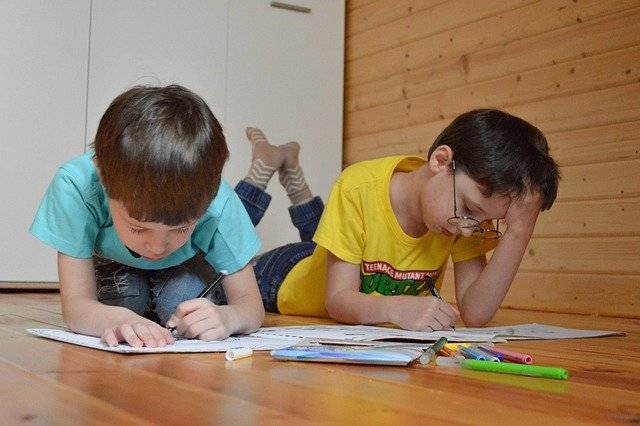How To Deal With Test Anxiety In Kids?

by Dr. Shanthi Thomas
Tests and exams are fearsome realities of a child’s life in school. Though a certain degree of anxiety is healthy, necessary even, it can be crippling beyond that point. There are children who even get physically sick when exams are near. Let us see what we can do to deal with test anxiety.
1. Start preparing early
One remedy for test anxiety is to prepare for tests early so that there is no last minute panic. It helps to start as soon as the child receives the exam notification and schedule. Create a schedule and start revising according to it. At this time, there is plenty of time before the examination, so there is no need to panic.
2. Do practice tests
Doing practice tests in the format of the actual examination is very effective in dealing with test anxiety. This familiarizes the child with the actual exam, and he will be less anxious with something with which he is familiar. It helps to do as many practice tests as well as past year papers as possible, to combat test anxiety. It also helps in time management during exams.
3. Find out what causes test anxiety
Very often there may be one or two particular factors of the examination that causes test anxiety. For example, in the case of students learning a foreign language, doing a composition test may be a cause for anxiety because they are not sure of their proficiency in the language. In this particular case, the child can be taught a few generic essays and then told to connect whichever question appears on the question paper to what he knows already.
4. Make sure there is enough study material
This goes without saying, but there are many anxious children who may also have trouble organizing their study material. Parents and teachers can make sure that the study material is complete and organized from beginning to end. Sometimes, the child might need extra material other than the text and class notes. You may have to buy commercially available extra help books to boost his confidence and give extra practice.
5. Be positive always
Nothing can be gained by negativity. Boost your child’s confidence by saying that he is preparing well, so the test is going to be easy. Never talk about past failures if any. It will only serve to make him feel inadequate and diffident. A part of being positive is being happy. Parents, especially mothers, tend to get very anxious at the time of their children’s tests. This only makes the child more anxious. Parents have to be pillars of strength for a child who has test anxiety.
6. Find out if test accommodations are possible
In some cases, anxious children may have some form of learning disability or other childhood problems such as Attention Deficit Hyperactivity Disorder (ADHD). There may be test accommodations for such children arranged by the school or exam board. You can find out about this from his teacher and make sure everything is in place. One such accommodation is allowing the child short breaks to leave the examination room and walk about. In some other cases, a person may be entrusted with reading out the questions to the child. Knowing about this earlier can help the child relax.
7. Acknowledge and praise the child’s efforts and feelings
If your child is putting in more effort, acknowledge it and praise him for the extra effort. Tell him that what is important is to try his best, and that itself is a good job, no matter what the exam results are. It is also crucial to validate his feelings. It is no use to tell an anxious child not to be anxious. They cannot help it. Acknowledge the anxiety, accept it, and then find remedies for it.
8. ‘It is not a life or death event’
Parents and children need to see examinations in perspective. Treating them as the most important thing in life may not be an ideal strategy if you intend to raise emotionally healthy kids with a balanced view of life. Sometimes, the best of efforts may produce no results, and that is okay. What is important is never to give up in the face of difficulties. Such grit and persistence is what leads to successful adult life. It will be helpful to tell him real life stories of people who have become successes though initially they could be considered failures, such as J.K. Rowling, the author of the ‘Harry Potter’ series of books.


